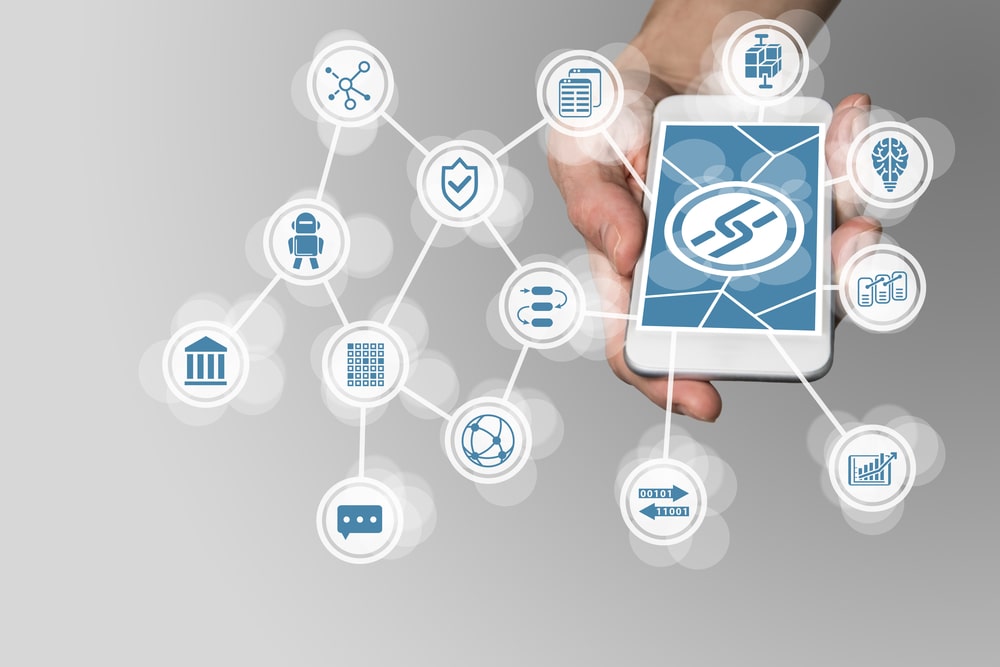If your company has clients that pay online, you would want to be able to receive cash using the widest selection of services at the lowest possible cost and thereby enabling the largest possible amount of clients to pay on your site for your services with the easiest tools and processes. Problem is, your company may be tied to expensive local banking services, or maybe denied of even opening a bank account where your clients are or simply as a new company.
Payment Processing companies
Payment processor companies are tech companies managing a payment settlement network between merchants and buyers internationally. The main job is to authenticate the parties and provide a secure path for the payment information. Tech companies are usually focusing on limited services at great cost efficiency and beat any bank at account fees and transfer costs, like ApplePay, GooglePay, Stripe, SecurePay, and dozens of others.
What is Blockchain Payment Processing?
Blockchain is an IT technology that secures information sequentially in a ledger, which serves as an accounting book. The first implementation and fully digital cryptocurrency was Bitcoin (BTC) followed by Ethereum (ETH) and later thousands of others.
What are the benefits of blockchain payment processing?
The anonymity, security, and accuracy of the system are maintained by a distributed and encrypted computing network around the world. To illegally change the balances (add or steal money), one would have to change the shared databases of thousands of independently located computers nearly at the same time. While the blockchain is designed to be anonymous, financial licenses require companies to implement KYC (know-your-client) registration that you need before using their applications, which provides transparency for taxation purposes. The big players are Binance, Bitpay, Bitcoin, etc.
3 types of Blockchain Payment processing services
- Some companies provide services for fiat only (just like traditional banks),
- Others do crypto-currency services only or both (like B2BPay crypto-to-fiat payment gateway).
- The key goal and challenge, where it becomes valuable to clients, is the connection of the two realms: crypto-to-fiat and fiat-to-crypto. PayPal (added crypto recently), BitStamp, Revolut, etc. If we consider crypto-currencies as financial assets, these companies act like brokerage companies where you can ‘buy and sell’ crypto coins the same way as stocks of companies. These solutions however can be pricey, and difficult (in some cases even impossible) to sign up for as a Non-European or new company now.

Service Range of Blockchain Payment Processing
It is important to note that service level varies widely, let’s see what the key limitations are to look out for, because companies need different financial licenses to provide these key services:
- Deposit/receive from bank accounts or debit/credit cards: you need to be able to fund your account and receive payments from clients. Wire transfer and direct card debit are the most frequent methods. Management fees vary while keeping accounts is usually cost-free (except for a few, like XAPO). Read more about Blockchain Bank Accounts here.
- Deposit/receive from crypto-currency wallets and other crypto applications: people and companies owning such assets should be able to pay for your services in many coin types (BTC, USDT, ETH…)
- Convert crypto-to-crypto: you should be able to convert between types of coins at will to hedge against price fluctuations. Merchants usually store unused assets in stable coins (USDT) that are pegged at 1:1 to a real currency (convertible at any time with minimal risk).
- Access multiple blockchains for transfer: some networks have higher costs than others. You should be able to choose from 2-3 alternatives (sending ETH could cost anywhere between 1 USD to 25 USD depending on network security and speed). Settling even international payments is very fast, 10 minutes to 3-4 hours with no hidden costs.
- Provide credit/debit card services linked to your account: just like in a bank, ATM services, and online purchases should be settled easily. Most companies run EC/MC or VISA, but it is also possible to get crypto-only or mixed account cards.
- Free conversion between currencies: most international clients receive, keep and maybe send transfers in multiple fiat currencies. You should have the choice to fulfill those payments dynamically in order to save on conversion costs, and store any incoming amount in any currency of your choice. They usually charge very low conversion fees, way better than that banks.
Who could benefit from blockchain payment processing?
As one can surely see, these services are vital to:
- Companies with a large number of international clients,
- Companies from risky locations or business lines,
- Companies with high baseline costs eat into the profit margin (it costs an EU to HK transfer around 50-60 USD and higher).
- Online merchants,
- Shopping companies,
- On-line gaming or casino companies need such solutions to grow to international markets.
- Traditional trading and export-import companies are very satisfied with the 2-3 hour settlement time against the 3-5-7 days of traditional banks: faster business means more profit under the same timeframe. International manufacturing companies are very likely located in underdeveloped banking regions where fast and safe access to money is a key to growth and survival.
While existing processing companies and banks are currently working hard to implement crypto-transfer capabilities and crypto-account companies are spending a lot of money to get financial permits to hold and transfer fiat accounts, the change is inevitable and imminent.
Frequently Asked Questions:
Can I allow my clients to pay this way on my own webshop?
Yes, a payment processor can be linked to the existing webshop’s exit process just like your current payment methods so that customers could freely choose among them.
Can I process crypto on Paypal?
Yes, Paypal added Bitcoin in 2020 to the processing system that allows payments and storage of Bitcoin, Ethereum, Litecoin, and Bitcoin Cash, limited to some regions. Updated info: Cryptocurrency at PayPal
How to receive money through blockchain?
You can have an unlimited amount of blockchain ‘bank’ account addresses to your name. An account is an encrypted address plus a passport combination. Since the blockchain ledger is uniform and shared around the world, you can read and access the account and the funds on it from any blockchain-capable application, it is not linked to the service provider. You only have to create an address and give that to your clients. They can simply send money to that database entry and you have access to your funds easily.
